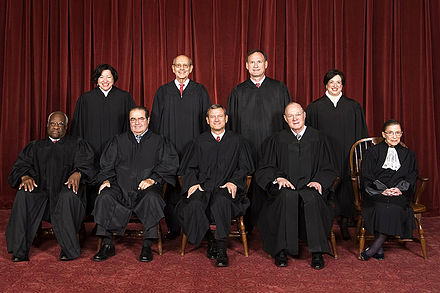Western Michigan University’s Thomas M. Cooley Law School is looking
for a buyer willing to pay $8.15 million for a building it owns in
downtown Lansing.
Cooley has owned the seven-story building, the former Masonic Temple, since 1974, the Lansing State Journal
reports. The building is mostly vacant after the operations department
moved out last fall. Classes were last held there in 2008.
Article here (aba journal).
Tuesday, December 30, 2014
Thursday, December 18, 2014
Trigger warnings: Will rape law continue to be taught in law schools?
A recent article (linked here via tax prof blog) discusses whether law schools should or will continue to teach rape law (or, as it's known in Michigan, CSC). It's because the subject matter is emotional and possibly causes trauma to students.
My law school did teach law on CSC /rape. We were taught the Michigan statutory version and the common law version. The prof did give a brief "trigger warning" as follows: "I know this is a distressting subject, and I'm sorry, but I'm required to teach it. Besides, if you end up doing prosecution, or criminal defense, you will need to know this."
Criminal law - as the curriculum is currently taught in law schools - also covers a lot of things that might not be 100% necessary for the students (whether they end up practicing criminal law or not). For example, arson, and robbery (common law robbery, which is breaking into your house at night), among others. It also does not cover a lot of criminal topics which are heavily tested on the bar exam (fleeing and eluding comes immediately to mind).
But the same is true for so many other law school topics: They are taught on the outside chance the student will need to know them, but they are also taught because the way they are learned lead to important skills in law practice, whether or not the student uses that particular piece of law or not. (Like Corporations Law, and teaching "piercing the corporate veil." I am almost 90% certain I will never use that in my law practice.)
CSC, which in its statutory breakdown, has a lot of elements and things to remember, is useful for students to learn because they will have to analyze it in an exam question. And the steps that students use to analyze - comparing the bare elements they have memorized and applying them to the situation described in the exam -- are something they will do every day in law practice.
Individual students often ask teachers not to include the law of rape on exams for fear that the material would cause them to perform less well. One teacher I know was recently asked by a student not to use the word “violate” in class—as in “Does this conduct violate the law?”—because the word was triggering. Some students have even suggested that rape law should not be taught because of its potential to cause distress. (from the article).
My law school did teach law on CSC /rape. We were taught the Michigan statutory version and the common law version. The prof did give a brief "trigger warning" as follows: "I know this is a distressting subject, and I'm sorry, but I'm required to teach it. Besides, if you end up doing prosecution, or criminal defense, you will need to know this."
Criminal law - as the curriculum is currently taught in law schools - also covers a lot of things that might not be 100% necessary for the students (whether they end up practicing criminal law or not). For example, arson, and robbery (common law robbery, which is breaking into your house at night), among others. It also does not cover a lot of criminal topics which are heavily tested on the bar exam (fleeing and eluding comes immediately to mind).
But the same is true for so many other law school topics: They are taught on the outside chance the student will need to know them, but they are also taught because the way they are learned lead to important skills in law practice, whether or not the student uses that particular piece of law or not. (Like Corporations Law, and teaching "piercing the corporate veil." I am almost 90% certain I will never use that in my law practice.)
CSC, which in its statutory breakdown, has a lot of elements and things to remember, is useful for students to learn because they will have to analyze it in an exam question. And the steps that students use to analyze - comparing the bare elements they have memorized and applying them to the situation described in the exam -- are something they will do every day in law practice.
Monday, December 8, 2014
Michigan bars could stay open to 4am under new bill
A bill that would allow some bars to sell liquor until 4 a.m. moved out of the Senate Regulatory Reform Committee on Thursday.
Sponsoring Sen. Virgil Smith, D-Detroit, said today that he got the idea to expand 2 a.m. bar hours from businesses in his downtown district.
Article here. (Via mlive.com).
Bar owners would have to pay a $10,000 fee to have this happen, and the city they're located in also has to approve it.
Sponsoring Sen. Virgil Smith, D-Detroit, said today that he got the idea to expand 2 a.m. bar hours from businesses in his downtown district.
Article here. (Via mlive.com).
Bar owners would have to pay a $10,000 fee to have this happen, and the city they're located in also has to approve it.
Tuesday, December 2, 2014
Michigan Bar exam - Results before appeals
This is the breakdown the BLE (Board of Law Examiners) has for the folks who took the July 2014 Michigan Bar Exam, as broken down by school.
Monday, November 24, 2014
Don't copy clients on emails: law practice notes
From the Lawyerist, some real practical practice advice.
I can see where this might be a temptation, as an attorney, to show your client what you've been working on, or to make sure the client feels "included" in the conversation But there are other ways to do this - like 4 way meetings, or mediation, without sacrificing your client's personal information. Also, it's best to leave some discussions to be done outside the client's hearing, whether in person, on the phone, or via email.
As a general rule, you should not CC your clients on emails.
First, because it gives every other recipient a chance to communicate directly with your client. In fact, it looks like an invitation to do so.
I can see where this might be a temptation, as an attorney, to show your client what you've been working on, or to make sure the client feels "included" in the conversation But there are other ways to do this - like 4 way meetings, or mediation, without sacrificing your client's personal information. Also, it's best to leave some discussions to be done outside the client's hearing, whether in person, on the phone, or via email.
Lawyer argues case as Thomas Jefferson, loses anyway.
Despite his brave but bumbling efforts to defend himself while in costume, Dennis Hawver was disbarred by the Kansas Supreme Court for “inexplicable incompetence” during a 2005 capital murder trial.
Article (with video) here (via the Lawyerist).
Article (with video) here (via the Lawyerist).
Thursday, November 20, 2014
Why did so many people fail the bar exam this time?
This article (via taxprof blog) suggests that lower LSAT scores for entering classes is the reason why the bar exam is tougher to pass:
From the article:
Are America’s law graduates really getting dumber? The people who put together the bar exam seem to think so.
The National Conference of Bar Examiners, a nonprofit that prepares one of the state-specific multiple-choice sections in which scores dropped dramatically, sent a curt message to law school deans in October. “The results are correct,” wrote Erica Moeser, the group’s president, in an Oct. 23 memo. “The group that sat in July 2014 was less able than the group that sat in July 2013.”
This is sort of a egg-then-chicken analysis, for what it's worth. Or it could be that state-level Law Examiners are making their scoring system tougher? As a side note, Michigan has yet to release it analysis of passers by school, etc., which they call the "results before appeals." I will post them once the BLE releases them, or go here for updates.
Also, the LSAT is supposed to indicate how a test taker will perform in their first year of law school, not whether that taker will the pass the bar. Law school is designed to weed out students, a job which it does very well (my entering class had more than double the number of people I graduated with).
(Sorry! I know that image has very little to do with the bar exam. I just love Mr. Darcy, and I needed a laugh. Thanks for reading!)
Studying law ruins reading for pleasure. It's a fact.
OK, maybe not a fact. But I know it took me a few years after law school to begin reading for pleasure again. Why? Because after all the case books and exams, reading fiction seemed pointless. No fictional character needs to have a problem solved by the the book's reader (except maybe in a choose-your-own-adventure novel).
And the ABA anecdotally backs up my anecdote:
Article here (via ABA journal).
And the ABA anecdotally backs up my anecdote:
In the November issue of the ABA Journal, Black’s Law Dictionary editor-in-chief Bryan Garner writes about an encounter with a law firm partner who approached him with a problem: Ever since law school, she’s found herself scouring whatever she’s reading for the most relevant, skimming “for the main point—as if for a holding. But in literature, it’s not there.”
Article here (via ABA journal).
Saturday, November 15, 2014
Children with disabilities and Social Security: How do you qualify?
Q: Does the federal government provide benefits to children with disabilities?
A: Yes. The parents or legal guardians of the child must apply to Social Security in order to get these benefits.
Below age 18, the child qualifies -- or doesn't qualify -- based on the income level of the parents. If the income level is below a designated limit, the disability of the child is then looked at to be sure that the child is disabled.
Depending on the income level of the parents involved, and the level of disability of the child, a child may begin receiving a benefit before the qualification process is complete. (In other words, the benefit gets paid during the process, and even if the child is ultimately not qualified, that benefit will not need to be paid back).
After age 18, the child can qualify based on his own income levels (so the parent's income level is no longer looked at).
Q: How do I start the process?
A: Go to the Social Security website to read their brochures on disability benefits for children. Also see this page, which describes the process in better detail. It's best if, after reading the information, you call the SSA to schedule an appointment. This reduces the time you will need to wait in line at the SSA offices. Bring any needed documentation with you to the scheduled interview.
At the interview, the parents' income levels will be checked, and a brief series of questions will be asked. At that point, the SSA interviewer will determine if more needs to be done to qualify the child or not. The SSA will eventually send a letter to the parents to tell them the result of the interview, although the parents will likely also be told at the interview whether the child qualifies.
Q: Are there other state-specific benefits that may be available? A: Yes. In Michigan, the state provides a benefit - the Family Support Subsidy -- to families with children who have a qualifying disability, are enrolled in a Michigan school district, and whose income is below a certain level. The child must re-qualify for the benefit each year. This is administered through a local agency, such as DA Blodgett.
A: Yes. The parents or legal guardians of the child must apply to Social Security in order to get these benefits.
Below age 18, the child qualifies -- or doesn't qualify -- based on the income level of the parents. If the income level is below a designated limit, the disability of the child is then looked at to be sure that the child is disabled.
Depending on the income level of the parents involved, and the level of disability of the child, a child may begin receiving a benefit before the qualification process is complete. (In other words, the benefit gets paid during the process, and even if the child is ultimately not qualified, that benefit will not need to be paid back).
After age 18, the child can qualify based on his own income levels (so the parent's income level is no longer looked at).
Q: How do I start the process?
A: Go to the Social Security website to read their brochures on disability benefits for children. Also see this page, which describes the process in better detail. It's best if, after reading the information, you call the SSA to schedule an appointment. This reduces the time you will need to wait in line at the SSA offices. Bring any needed documentation with you to the scheduled interview.
At the interview, the parents' income levels will be checked, and a brief series of questions will be asked. At that point, the SSA interviewer will determine if more needs to be done to qualify the child or not. The SSA will eventually send a letter to the parents to tell them the result of the interview, although the parents will likely also be told at the interview whether the child qualifies.
Q: Are there other state-specific benefits that may be available? A: Yes. In Michigan, the state provides a benefit - the Family Support Subsidy -- to families with children who have a qualifying disability, are enrolled in a Michigan school district, and whose income is below a certain level. The child must re-qualify for the benefit each year. This is administered through a local agency, such as DA Blodgett.
Michigan July Bar exam results - list of certified passers
The Board of Law Examiners has posted the list of certified passers for the July 2014 Michigan Bar Exam.
List here.
This is results before appeals.
List here.
This is results before appeals.
Wednesday, November 12, 2014
It's unethical for prosecutors to lend letterhead to bill collectors, says ABA opinion
District attorneys should not contract out their letterhead to private
debt collection companies, who then use that official letterhead to
scare consumers into paying debts.
ABA Formal Ethics Opinion 469 (PDF) explains that this practice violates ABA Model Rules against lawyer conduct involving dishonesty or misrepresentation and aiding or assisting others in the unauthorized practice of law.
Article here (via aba journal).
ABA Formal Ethics Opinion 469 (PDF) explains that this practice violates ABA Model Rules against lawyer conduct involving dishonesty or misrepresentation and aiding or assisting others in the unauthorized practice of law.
Article here (via aba journal).
Tuesday, November 11, 2014
Ways to surf the web anonymously to protect your clients
Why should you care about your information on the internet, you ask?
Article here (via the lawyerist).
When you use the internet, all your traffic originates from your IP address. A quick internet search will map your IP address to your city, and it is becoming increasingly easier to map that IP address to something as narrow as a street location. However, Tor masks your IP location, which means that you will not accidentally reveal your location if, say, you’ve traveled to meet with a client.
Article here (via the lawyerist).
Monday, November 10, 2014
Ways to cut your taxes by year-end
Here are key areas to focus on before year-end.
- Adjusted gross income
- Investment gains and losses
- Charitable giving
- Alternative minimum tax
- Medical costs
- Health insurance
- Tax-free gifts for education or other purposes
- Tax-preparation costs
Woman sues nail salon, claims pedicure caused leg amputation
A woman has sued a Portland, Oregon, nail salon, contending that a pedicure resulted in the amputation of her right leg.
Madhu Kumar alleges in her complaint that a Nails Trap pedicurist tried to shave calluses off her feet in 2012, resulting in the negligent laceration of “the media distal tip of (Kumar’s) right hallux,” otherwise known as the big toe, the Oregonian reports.
Profuse bleeding and gangrene to her toe resulted, eventually resulting in the amputation of her toe and leg, Kumar alleges.
Article here (via aba journal).
Madhu Kumar alleges in her complaint that a Nails Trap pedicurist tried to shave calluses off her feet in 2012, resulting in the negligent laceration of “the media distal tip of (Kumar’s) right hallux,” otherwise known as the big toe, the Oregonian reports.
Profuse bleeding and gangrene to her toe resulted, eventually resulting in the amputation of her toe and leg, Kumar alleges.
Article here (via aba journal).
Friday, November 7, 2014
Michigan July 2014 Bar Exam results posted
Results for the Michigan July 2014 Bar Exam have been posted - by seat number.
Takers will be notified later of scores, and names of passers will be posted
at this link.
Best of luck to all takers!
Takers will be notified later of scores, and names of passers will be posted
at this link.
Best of luck to all takers!
Wednesday, November 5, 2014
Elder law attorney accused of stealing from clients and estates pleads guilty, forfeits $3M
A New Jersey attorney known for her elder law expertise has pleaded
guilty to money laundering.concerning a scheme that allegedly stripped
senior clients and some of their estates of millions of dollars.
Barbara Lieberman, 62, also agreed to give up her law license, some $3 million in frozen assets and a BMW in her Monday plea in the Atlantic County Superior Court case, New Jersey Lawyer (sub. req.) and the Philadelphia Inquirer report.
Article here.
Barbara Lieberman, 62, also agreed to give up her law license, some $3 million in frozen assets and a BMW in her Monday plea in the Atlantic County Superior Court case, New Jersey Lawyer (sub. req.) and the Philadelphia Inquirer report.
Article here.
Thursday, October 30, 2014
Legal mistake: Judge confuses not guilty with guilty
The Los Angeles judge erred during the December 2006 voir dire in the
sex-crime trial of Bryant Keith Williams, according to the San
Francisco-based 9th U.S. Circuit Court of Appeals.
The judge said Williams had pleaded guilty to the charges, though he intended to say Williams had pleaded not guilty.
Article here. (via above the law blog).
The judge said Williams had pleaded guilty to the charges, though he intended to say Williams had pleaded not guilty.
Article here. (via above the law blog).
Tuesday, October 28, 2014
Former Zeeland attorney spent almost all $900,000 of missing client funds
Of the $900,000 that former Zeeland attorney Kenneth Hoesch took
from clients’ estate trusts, only a relative pittance has been found.
He had $2,065.57 in a client trust account at Macatawa Bank and had a coin collection, appraised at $3,388, in a safety-deposit box at Huntington Bank in Zeeland.
Article here. (via mlive.com)
He had $2,065.57 in a client trust account at Macatawa Bank and had a coin collection, appraised at $3,388, in a safety-deposit box at Huntington Bank in Zeeland.
Article here. (via mlive.com)
Monday, October 27, 2014
Did you ever wonder why lawyers are so expensive? ?
Lawyers are expensive because you get a lot for your money. You get someone who will abandon their precious supercar — or regular car — in rising flood waters so he can attend your hearing. You get someone who will lose sleep worrying about your legal problem so you can finally get some rest.
Article here (via the Lawyerist).
Or, as my Civil Procedure professor put it: Lawyers are like garbage men: we take your problems, put them away for you, so you don't have to do it yourself. He liked to use graphics and props in class, so sometimes he had a toaster, stuffed animal, garbage bag (or maybe I am misremembering that part, it was 9am on a Sunday when I took that class), or other thing to demonstrate what he was explaining. I didn't score very high in that class but I do remember a lot of it quite well, thanks to his graphics and explanations.
Number of people taking LSAT drops further
The number of people taking the Law School Admission Test dropped 8.1
percent for the test this fall, compared to the fall test last year,
after declining 9.2 percent for the June test.
Those latest figures from the Law School Admission Council indicate a downward trend over the last five years, report TaxProf Blog and the Excess of Democracy Blog. The total number of LSATs administered in June and September/October is 52,745, a drop of 40 percent from the totals for the same test period in 2009.
Article here. (ABA Journal).
Those latest figures from the Law School Admission Council indicate a downward trend over the last five years, report TaxProf Blog and the Excess of Democracy Blog. The total number of LSATs administered in June and September/October is 52,745, a drop of 40 percent from the totals for the same test period in 2009.
Article here. (ABA Journal).
Wednesday, October 22, 2014
Want to go to law school for less? Get into Wayne State Law School.
Wayne State University Law School is battling a drop in enrollment
with a tuition freeze and guaranteed scholarships for every incoming
student.
The Detroit law school says in a press release that tuition will be frozen at about $28,000 for all incoming and current students through at least the 2015-16 school year. In addition, the school is guaranteeing scholarships of at least $4,000 annually to all incoming students and offering nearly $1 million in new scholarship opportunities to current students. TaxProf Blog noted coverage in the Detroit Free Press.
Article here (via abajournal).
The Detroit law school says in a press release that tuition will be frozen at about $28,000 for all incoming and current students through at least the 2015-16 school year. In addition, the school is guaranteeing scholarships of at least $4,000 annually to all incoming students and offering nearly $1 million in new scholarship opportunities to current students. TaxProf Blog noted coverage in the Detroit Free Press.
Article here (via abajournal).
Monday, October 20, 2014
Mom's facebook message to Dad not sufficient notice about adoption, court rules
A pregnant unwed mother can’t use Facebook alone to notify the father about the baby before putting the child up for adoption, Oklahoma’s highest civil court has ruled.
The case was the latest to test the legal weight of communication through Facebook and other social media. Previously, for instance, courts have debated whether a plaintiff in a lawsuit could use Facebook to serve legal papers — such as summonses or hearing notices — on a defendant.
Article here. (via Wall Street Journal law blog).
The case was the latest to test the legal weight of communication through Facebook and other social media. Previously, for instance, courts have debated whether a plaintiff in a lawsuit could use Facebook to serve legal papers — such as summonses or hearing notices — on a defendant.
Article here. (via Wall Street Journal law blog).
Friday, October 17, 2014
Requiring sex offenders to disclose online screen names isn't a Free Speech violation, says court.
A Pennsylvania law requiring convicted sex offenders to reveal their Internet aliases does not violate the First Amendment, according to an en banc panel of Pennsylvania’s intermediate-level Commonwealth Court.
The sex offender, Richard Coppolino, had alleged the law violated his right to anonymous online speech, report the Legal Intelligencer and the Allentown Morning Call. He alleged the reporting requirement was overbroad because it was intended to protect minors, but his crime did not involve a minor or the Internet.
Article here (via ABA journal).
The sex offender, Richard Coppolino, had alleged the law violated his right to anonymous online speech, report the Legal Intelligencer and the Allentown Morning Call. He alleged the reporting requirement was overbroad because it was intended to protect minors, but his crime did not involve a minor or the Internet.
Article here (via ABA journal).
Wednesday, October 15, 2014
Incapacitated individuals and family law: who can file for divorce?
Q: Can a guardian or conservator file for divorce on behalf of an incapacitated individual?
A: Yes.The Michigan Court of Appeals has recently ruled on this issue. See In Re: Burnett Estate,
834 NW 2d 93 - Mich: Court of Appeals 2013.
If an individual becomes incapacitated, it's likely that he or she will then have a person acting for him or her. It could be a conservator -- who's in control of his or her finances, or a guardian -- who's in control of his or her personal decisions (like where to live, what doctors to see, etc.).
That guardian or conservator -- whether appointed by a court or selected through another method-- is allowed under Michigan law to file suit, and be sued on the incapacitated individual's behalf. (See Michigan Court Rules 3.202 (A) and 2.201 (E)). Under the Burnett case, that includes a suit for divorce (and, presumably custody).
In the Burnett case, a divorce was filed by the conservators of the Plaintiff. The Defendant later motioned the court for summary judgment, asking for the circuit court judge to dismiss the action, based on the case being filed by a conservator.
The circuit court dismissed the summary judgment motion, saying a conservator does have authority to file on behalf of an incapacitated individual. Other issues existed in the case. But once the case was decided, the Defendant appealed on multiple grounds, including the grounds that the conservator should not have been allowed to file, and that the circuit court should have granted the summary judgment motion.
The Court of Appeals disagreed with this ground of Defendant's appeal, and interpreted the Court Rules to allow for a divorce to be filed by a conservator or guardian.
"Had the legislature intended to prohibit an action by a guardian on behalf of a spouse, it could have expressly said so in the language of [the statute]." Burnett, at 97.
The circuit court dismissed the summary judgment motion, saying a conservator does have authority to file on behalf of an incapacitated individual. Other issues existed in the case. But once the case was decided, the Defendant appealed on multiple grounds, including the grounds that the conservator should not have been allowed to file, and that the circuit court should have granted the summary judgment motion.
The Court of Appeals disagreed with this ground of Defendant's appeal, and interpreted the Court Rules to allow for a divorce to be filed by a conservator or guardian.
"Had the legislature intended to prohibit an action by a guardian on behalf of a spouse, it could have expressly said so in the language of [the statute]." Burnett, at 97.
Have more questions about family law or estate planning (or the inter-twining of the two)? Ask me! Post your comments or questions on this blog.
Tuesday, October 14, 2014
Prison sentence for man who assaulted his girlfriend for not wanting him to go to strip clubs
A Traverse City man was sentenced to nearly five years in prison for
trying to strangle his girlfriend who, according to investigators, did
not like him going to strip clubs.
Article here.
Article here.
Dissent makes strange companions: Ginsberg, Scalia and Thomas join in dissent
"Cert" or certiorari, is the process whereby the US Supreme Court decides whether to hear a case. A party -- who has already had a ruling from a "lower" court -- has to petition the US Supreme to hear the case. This is called a "petition for certiorari." When the justices review a case, but decide not to hear any oral argument, they deny its certiorari (which leads to its being "cert denied").
Justices can, but most often do not, write a dissent against cert being denied. Why? Because the justices would be writing them all the time. The vast majority of cases that are appealed to the US Supremes are denied.
So it's unusual for justices to write a dissent about denial of a cert petition. And it's more rare still when justices Ginsberg, Scalia, and Thomas, who usually have such otherwise- opposing view points, join in that dissent.
Article here.
Justices can, but most often do not, write a dissent against cert being denied. Why? Because the justices would be writing them all the time. The vast majority of cases that are appealed to the US Supremes are denied.
So it's unusual for justices to write a dissent about denial of a cert petition. And it's more rare still when justices Ginsberg, Scalia, and Thomas, who usually have such otherwise- opposing view points, join in that dissent.
Article here.
Justice Antonin Scalia wrote the dissent (PDF), joined by Justices Clarence Thomas and Ruth Bader Ginsburg. “The present petition presents the nonhypothetical case the court claimed to have been waiting for,” Scalia wrote.
Jurors had convicted three drug defendants in the case for distributing small amounts of crack cocaine, but acquitted the defendants of conspiring to distribute drugs. The sentencing judge nonetheless found that the defendants had engaged in the conspiracy and, relying largely on that finding, calculated guidelines ranges that were much higher than for distribution convictions.
“Petitioners present a strong case that, but for the judge’s finding of fact, their sentences would have been ‘substantively unreasonable’ and therefore illegal,” Scalia wrote. “If so, their constitutional rights were violated.
Thursday, October 9, 2014
Justice in Stapleton case, according to Autism Advocates
Kelli Stapleton, a mom in Northern Michigan, attempted to kill her autistic daughter and herself in 2013, and was charged with first-degree child abuse.
Stapleton was sentenced earlier yesterday, and received the maximum penalty under Michigan's sentencing guidelines for the crime.
The Autism Self Advocacy Network (ASAN) celebrates the success of the justice system in a press release today.
Article here (via mlive).
Stapleton was sentenced earlier yesterday, and received the maximum penalty under Michigan's sentencing guidelines for the crime.
The Autism Self Advocacy Network (ASAN) celebrates the success of the justice system in a press release today.
Article here (via mlive).
By imposing a similar sentence as would be expected for someone who committed the same crime against a non-disabled child, the court has sent the message that Issy’s life was as valued as any other.
Tuesday, October 7, 2014
Lawyers: When should you decide not to take a case?
Getting more work is part of the work when you're a solo attorney. As if it's not enough to just do a good job on the work you do get, you won't get new work unless you are actively looking for it. And everyone says they want more cases, but what they really want is more good cases.
This article is a short list (from The Lawyerist) of how to evaluate when a case is good (worth taking) or not.
This article is a short list (from The Lawyerist) of how to evaluate when a case is good (worth taking) or not.
When evaluating clients, I have a list of red flags that generally mean I will not take the case. Like most lawyers, I have talked to potential clients and declined to represent them without hearing much about their potential case. If there is something about a client that does not fit my standard profile at the intake stage, it will become a bigger problem as the case develops.
Monday, October 6, 2014
How is an estate handled when a couple dies at the same time?
Q: What happens to estates when a married couple dies at the same time?
A: It depends.
Most states, including Michigan, have adopted some form of the Uniform Simultaneous Death Act. (Michigan's version is in the Estates and Protected Individuals Code, aka EPIC, since Michigan loves to give acronyms to the things it writes in legislative code.)
More information here (Wikipedia article) and here (Michigan legislative service).
For example, John and Mary are a retired couple who take a bus trip, and die an untimely death en route to their destination. Who will inherit the estate of Mary, Mary's family? or John's? What if John dies on the bus, but Mary lives in the hospital, and dies from complications one day later? Because if Mary died first, her estate would become John's, who then has the larger estate, (see the problem?) And: would an heir then "take" twice, once from the first to die, and a second time from the second to die?
The law, in the form of the Simultaneous Death Act, takes care of both problems. It determines for all those wondering who died first that they both died first. In this way, both sides of the family will take from their decedent's estate only one time.
Have other questions about how Michigan law treats your property when you die? Ask me! One of my specialty areas of law is estate planning, which includes wills and trusts.
A: It depends.
Most states, including Michigan, have adopted some form of the Uniform Simultaneous Death Act. (Michigan's version is in the Estates and Protected Individuals Code, aka EPIC, since Michigan loves to give acronyms to the things it writes in legislative code.)
The Uniform Simultaneous Death Act is a uniform act enacted in some U.S. states to alleviate the problem of simultaneous death in determining inheritance.
The Act specifies that, if two or more people die within 120 hours of one another, and no will or other document provides for this situation explicitly, each is considered to have predeceased the others.
More information here (Wikipedia article) and here (Michigan legislative service).
For example, John and Mary are a retired couple who take a bus trip, and die an untimely death en route to their destination. Who will inherit the estate of Mary, Mary's family? or John's? What if John dies on the bus, but Mary lives in the hospital, and dies from complications one day later? Because if Mary died first, her estate would become John's, who then has the larger estate, (see the problem?) And: would an heir then "take" twice, once from the first to die, and a second time from the second to die?
The law, in the form of the Simultaneous Death Act, takes care of both problems. It determines for all those wondering who died first that they both died first. In this way, both sides of the family will take from their decedent's estate only one time.
Have other questions about how Michigan law treats your property when you die? Ask me! One of my specialty areas of law is estate planning, which includes wills and trusts.
Thursday, October 2, 2014
When should a judge recuse herself? Justice Ginsberg puts her role in debate.
Recusal is when a judge "sits out" on a case that she would otherwise have heard. It can happen voluntarily - she decides that her interest in a case client would injure her impartiality, or involuntarily -- when an attorney for a party motions the court to recuse. It's part of due process, which means that a case should be heard by a fair an impartial judge.
Comments made by Justice Ruth Bader Ginsburg in a magazine interview have reignited a long-simmering ethical debate confronting the Supreme Court over when a justice ought to sit out a case.
In a New Republic interview published Sunday, Justice Ruth Bader Ginsburg was asked by legal scholar Jeffrey Rosen if state lawmakers could be trusted to safeguard abortion rights.
Article here. (via WSJ lawblog).
Comments made by Justice Ruth Bader Ginsburg in a magazine interview have reignited a long-simmering ethical debate confronting the Supreme Court over when a justice ought to sit out a case.
In a New Republic interview published Sunday, Justice Ruth Bader Ginsburg was asked by legal scholar Jeffrey Rosen if state lawmakers could be trusted to safeguard abortion rights.
Article here. (via WSJ lawblog).
The upcoming US Supreme Court sessions: What to expect
The Supreme Court on Thursday agreed to hear a pair of high-stakes discrimination cases that examine religious accommodations for job applicants and the scope of federal fair-housing law.
The cases were among a new batch of appeals the justices added to their docket for the court’s upcoming 2014-2015 term, which begins on Monday.
Article here (via wsj law blog).
The cases were among a new batch of appeals the justices added to their docket for the court’s upcoming 2014-2015 term, which begins on Monday.
Article here (via wsj law blog).
Monday, September 29, 2014
Smartphones and your privacy right - the FBI is concerned (but not necessarily in a good way).
The FBI states that it is "concerned" about Apple Inc.'s and Google's attempts to encrypt information on your smartphone, that will increase your privacy and and limit access to your data by outsiders.
Article here (via WSJ law blog).
My take on this is that Apple & Google are thinking they are better off not getting sued by users (who could very likely join in a class action suit as well). So that they will wait to be forced to give up users' privacy until they must (probably through a federal court ruling).
FBI Director James Comey on Thursday said he’s bothered by moves by Apple Inc. and Google Inc. to market privacy innovations on smartphones that put some data out of the reach of police, saying agency officials have been in touch with both companies.
“What concerns me about this is companies marketing something expressly to allow people to place themselves beyond the law,” Mr. Comey said in a briefing with reporters, reports WSJ’s Brent Kendall.
Mr. Comey said he still wants to get a better handle on the implications of the technology, saying FBI officials have engaged in discussions with the companies “to understand what they’re thinking and why they think it makes sense."
Article here (via WSJ law blog).
My take on this is that Apple & Google are thinking they are better off not getting sued by users (who could very likely join in a class action suit as well). So that they will wait to be forced to give up users' privacy until they must (probably through a federal court ruling).
Good news: You can opt out of Affordable Care Act. Bad news: the penalty is large ($12,000 for family of five)
For
a family of five, the penalty could be as high as $12,240 for the 2014
tax year, experts say. And for many people, the penalty will rise
sharply in 2015 and 2016.
The
massive health-care changes passed in 2010 are phasing in, and this is
the first year most Americans must have approved health insurance. Those
who don't will owe a penalty under the Individual Shared Responsibility
Provision. It's due with your income taxes, payable by April 15, 2015.
Article here (via taxprof blog).
Tuesday, September 23, 2014
The State Bar of Michigan has a new president: Thomas C. Rombach
Last week at the State Bar's annual meeting, the 80th president of the State Bar was sworn in. His name is Thomas C. Rombach.
Mr. Rombach is a solo practitioner who focuses his practice on criminal and civil litigation.
Article here. (via State Bar of Michigan blog).
Mr. Rombach earned his undergrad degree at Michigan State University and graduated from law school at Thomas M. Cooley Law School.
Mr. Rombach is a solo practitioner who focuses his practice on criminal and civil litigation.
Article here. (via State Bar of Michigan blog).
Mr. Rombach earned his undergrad degree at Michigan State University and graduated from law school at Thomas M. Cooley Law School.
Thomas
C. Rombach, of New Baltimore, has been sworn in as the 80th president
of the State Bar of Michigan. Michigan Supreme Court Chief Justice
Robert P. Young Jr. officiated at the Sept. 18 ceremony, which took
place in conjunction with the SBM Annual Meeting at DeVos Place in Grand
Rapids.
Mr. Rombach is a solo practitioner and focuses his practice on representing criminal and civil litigants.
- See more at: http://sbmblog.typepad.com/sbm-blog/2014/09/thomas-c-rombach-sworn-in-as-state-bar-of-michigan-president.html#sthash.yR1zXMa7.dpuf
Mr. Rombach is a solo practitioner and focuses his practice on representing criminal and civil litigants.
- See more at: http://sbmblog.typepad.com/sbm-blog/2014/09/thomas-c-rombach-sworn-in-as-state-bar-of-michigan-president.html#sthash.yR1zXMa7.dpuf
Thomas
C. Rombach, of New Baltimore, has been sworn in as the 80th president
of the State Bar of Michigan. Michigan Supreme Court Chief Justice
Robert P. Young Jr. officiated at the Sept. 18 ceremony, which took
place in conjunction with the SBM Annual Meeting at DeVos Place in Grand
Rapids.
Mr. Rombach is a solo practitioner and focuses his practice on representing criminal and civil litigants.
- See more at: http://sbmblog.typepad.com/sbm-blog/2014/09/thomas-c-rombach-sworn-in-as-state-bar-of-michigan-president.html#sthash.yR1zXMa7.dpuf
Mr. Rombach is a solo practitioner and focuses his practice on representing criminal and civil litigants.
- See more at: http://sbmblog.typepad.com/sbm-blog/2014/09/thomas-c-rombach-sworn-in-as-state-bar-of-michigan-president.html#sthash.yR1zXMa7.dpuf
Artprize 2014: Starting this week! Downtown Grand Rapids!
The Grand River during ArtPrize has
been the place to see a mythical dragon, a herd of ghostlike horses,
and an expanse of colorful banners fluttering in the breeze.
Now comes an adult-sized bunny as Playboy founder Hugh Hefner never imagined.
Article here (Grand Rapids Press via mlive.com)
"The tricky thing was to design them in a way that they float and move around in the water," the artist, Alex Podesta, said.
Artprize begins Sept. 24 and runs through Oct. 12, at 174 venues in the downtown Grand Rapids area.
Now comes an adult-sized bunny as Playboy founder Hugh Hefner never imagined.
Article here (Grand Rapids Press via mlive.com)
"The tricky thing was to design them in a way that they float and move around in the water," the artist, Alex Podesta, said.
Artprize begins Sept. 24 and runs through Oct. 12, at 174 venues in the downtown Grand Rapids area.
Monday, September 22, 2014
Did you know: In Michigan, the governor and legislature are exempt from FOIA requests
Michigan's FOIA (Freedom of Information Act) law, passed in 1976, is silent on whether state
lawmakers are covered, but former Attorney General Frank Kelley, in a
1986 opinion, said "the Legislature has exempted state legislators" from
the law. (For those laws where the legislature's intent is hard to interpret, the AG's office comes out with "opinions," also called OAGs, that will give guidance to the rest of the public.)
Combined, the exemptions for the governor and lawmakers make Michigan's open records law one of the country's weakest, in terms of who is covered and who is not.
Article here.
Michigan's FOIA says the parts of state government it covers "does not include the governor or lieutenant governor, the executive office of the governor or lieutenant governor, or employees thereof."
Some records in the Michigan governor's office still must be released since the state constitution — which trumps the FOIA — says "all financial records ...and other reports of public moneys shall be public records and open to inspection."
But records related to the governor available in many other states — such as correspondence, reports, appointment schedules and phone records — are not available in Michigan.
(credit where credit is due: Blog article idea credit goes to attorney Carri Briseno.
Combined, the exemptions for the governor and lawmakers make Michigan's open records law one of the country's weakest, in terms of who is covered and who is not.
Article here.
Michigan's FOIA says the parts of state government it covers "does not include the governor or lieutenant governor, the executive office of the governor or lieutenant governor, or employees thereof."
Some records in the Michigan governor's office still must be released since the state constitution — which trumps the FOIA — says "all financial records ...and other reports of public moneys shall be public records and open to inspection."
But records related to the governor available in many other states — such as correspondence, reports, appointment schedules and phone records — are not available in Michigan.
(credit where credit is due: Blog article idea credit goes to attorney Carri Briseno.
It's hard to unseat a federal judge - they serve for life
“Federal judges have life tenure and the reason for that is to enable
them to resist popular and legislative pressure,” University of Pittsburgh law professor Arthur Hellman said. “There is a
long history of popular calls for impeaching federal judges, though
generally for their [legal] decisions.”A federal judge can’t be forced
from the bench even if convicted of a felony, he added.
This quote comes in connection with Alabama Federal judge Mark Fuller being called on to step down after domestic violence allegations.
Article here.
The 11th Circuit Court of Appeals has reassigned Judge Fuller’s caseload. The judge agreed to undergo counseling and a drug and alcohol evaluation through a pretrial diversion agreement with a Georgia court under a program that gives certain non-violent offenders an opportunity to avoid prosecution. The charges will be dropped if he completes the program.
“This incident has been very embarrassing to me, my family, friends and the court,” Judge Fuller told reporters in a statement last month. “I deeply regret this incident and look forward to working to resolve these difficulties with my family, where they should be resolved.”
This quote comes in connection with Alabama Federal judge Mark Fuller being called on to step down after domestic violence allegations.
Article here.
The 11th Circuit Court of Appeals has reassigned Judge Fuller’s caseload. The judge agreed to undergo counseling and a drug and alcohol evaluation through a pretrial diversion agreement with a Georgia court under a program that gives certain non-violent offenders an opportunity to avoid prosecution. The charges will be dropped if he completes the program.
“This incident has been very embarrassing to me, my family, friends and the court,” Judge Fuller told reporters in a statement last month. “I deeply regret this incident and look forward to working to resolve these difficulties with my family, where they should be resolved.”
Tuesday, September 16, 2014
Murder for hire in Traverse City: Clarence Gomery case update
Dale Fisher was straightforward as he approached Northern Michigan attorney Christopher Cooke July 12 with startling news.
"So, I've been asked to murder you and offered $20,000 to do it," Fisher says, as he opens a recorded conversation with Cooke.
Article here. (via mlive.com)
The exchange was among several recently released by Grand Traverse County sheriff's authorities through a Freedom of Information Act request as a case against Gomery awaits trial in court.
Gomery is jailed on a $5 million bond and is charged with soliciting murder and solicitation of a felony, because the crime involved carrying a weapon with unlawful intent.
"So, I've been asked to murder you and offered $20,000 to do it," Fisher says, as he opens a recorded conversation with Cooke.
Article here. (via mlive.com)
The exchange was among several recently released by Grand Traverse County sheriff's authorities through a Freedom of Information Act request as a case against Gomery awaits trial in court.
Gomery is jailed on a $5 million bond and is charged with soliciting murder and solicitation of a felony, because the crime involved carrying a weapon with unlawful intent.
Monday, September 15, 2014
Firing Squad bill advances in Wyoming (If lethal injection becomes unavailable).
A Wyoming legislative panel on Friday advanced a bill
that would authorize the state to use a firing squad to execute inmates
on death-row if prison officials fail to obtain drugs for lethal
injections.
Article here (via WSJ Law Blog).
Article here (via WSJ Law Blog).
Lawyer appears in Thomas Jefferson garb to defend his law license
A lawyer wearing a Thomas Jefferson getup appeared before the Kansas
Supreme Court on Friday in a quest to retain his law license.
Lawyer Ira Dennis Hawver wore a powdered wig, 18th century suit and long white stockings as he argued that the First Amendment protected his unusual defense of a capital murder client, the Topeka Capital-Journal reports.
Article here (via ABA Journal).
Lawyer Ira Dennis Hawver wore a powdered wig, 18th century suit and long white stockings as he argued that the First Amendment protected his unusual defense of a capital murder client, the Topeka Capital-Journal reports.
Article here (via ABA Journal).
Friday, September 12, 2014
Cool science news: Stonehenge was bigger than we thought it was
Today, the word “Stonehenge” evokes an image of an eerie stone circle standing alone on a windswept plane.
But new digital maps show the prehistoric monument didn’t always look that way. Those 24-foot-tall, 90,000-pound blocks we still find so impressive were actually part of a much larger complex of shrines — including an even-larger “super henge” nearly half a kilometer in diameter.
Article here (via Washington Post).
But new digital maps show the prehistoric monument didn’t always look that way. Those 24-foot-tall, 90,000-pound blocks we still find so impressive were actually part of a much larger complex of shrines — including an even-larger “super henge” nearly half a kilometer in diameter.
Article here (via Washington Post).
Man faints after hearing 40-year sentence in courtroom
After 18 years in prison for murder, it is not clear what Paul White
was expecting to happen after he pleaded guilty to three counts of armed
robbery and bribing a witness.
But when Judge Mark Trusock told the 37-year-old he would not be eligible for parole until he was 77, White’s knees buckled and he hit the Kent County Circuit Court floor on Thursday, Sept. 11.
Article here. (via mlive.com)
But when Judge Mark Trusock told the 37-year-old he would not be eligible for parole until he was 77, White’s knees buckled and he hit the Kent County Circuit Court floor on Thursday, Sept. 11.
Article here. (via mlive.com)
State Bar Annual Meeting: Next Week! Grand Rapids!
It's annual, it's big, it's the annual State Bar Meeting, and Solo and Small Firm Institute.
There is still time to register, go to the state bar website. More information at SBM blog.
There is still time to register, go to the state bar website. More information at SBM blog.
Thursday, September 11, 2014
Law school hypotheticals, and "cautionary tales:" Do they make you freak out?
Oh yes, you remember this scenario. You're doing the reading for class (way ahead of time, of course, because you were a good law student). And part of the reading includes this hypothetical that seems, well, bizarre. There is no way, you tell yourself, that this is based on an actual case. But once you attend class, the professor tells you, lo and behold, it's based on a case the professor actually knew about! Sheesh, you tell yourself. How odd the real world is.
Fast forward to the next class, where the prof tells you that "It was a mistake in the brief" that caused this whole problem. Yikes, you think, I am going to be sooooo cautious once I get into practice.
Then fast forward to 2 years in the future. Law school is in the rear-view mirror, you passed the bar and are now practicing (gulp) law! And your mind is beset by those hypotheticals, and "cautionary tales" of what to do. And you're overcome by indecision and insecurity. What happened? You're supposed to be decisive and a natural leader once law school was over with.
Blame law school! Here's an article about how law school hobbles you for future practice.
Fast forward to the next class, where the prof tells you that "It was a mistake in the brief" that caused this whole problem. Yikes, you think, I am going to be sooooo cautious once I get into practice.
Then fast forward to 2 years in the future. Law school is in the rear-view mirror, you passed the bar and are now practicing (gulp) law! And your mind is beset by those hypotheticals, and "cautionary tales" of what to do. And you're overcome by indecision and insecurity. What happened? You're supposed to be decisive and a natural leader once law school was over with.
Blame law school! Here's an article about how law school hobbles you for future practice.
Thursday, August 28, 2014
US Department of Justice seeks applicants for US Attorney General programs
The Department of Justice has openings! Go to this site for more details. Deadline to apply is September 2.
IRS Ethics lawyer facing possible disbarrment over lying
You'd think a PR attorney would know better than to lie when facing a panel. But apparently not.
Article here. (via taxprof blog).
Article here. (via taxprof blog).
A
lawyer in the IRS ethics office is facing the possibility of being
disbarred, according to records that accuse her of lying to a
court-appointed board and hiding what she’d done with money from a
settlement that was supposed to go to two medical providers who had
treated her client.
The disciplinary arm of the D.C. Court of Appeals has recommended that Takisha McGee,
a section manager in the IRS Office of Professional Responsibility,
lose her law license over the charge, which stems from a personal injury
case she worked about a year before she joined the tax agency.
Monday, August 18, 2014
Mr. T. appears for jury duty
Lawrence Tureaud, better known as Mr. T, in comments made outside the Third Municipal District Courthouse in Rolling Meadows, Illinois, where he’d been called for jury duty.
Article here (via Above the Law).
Taking and defending depositions - what are proper objections?
The difference between deposition and trial is that questions not allowed at trial may be allowed at deposition. Depositions are about asking questions that may lead to admissible evidence. That's what discovery means.
Read this article to learn more about which objections are proper and which are not. (via the lawyerist blog).
Read this article to learn more about which objections are proper and which are not. (via the lawyerist blog).
Don't skip it: Why vacations are important for your brain
It's August. So that means there is a lot of room to park in the lots at work, and it's hard to reach people on the phone at work. Vacation in August is just as American as apple pie and baseball.
But beware the false break. Make sure you have a real one. The summer vacation is more than a quaint tradition. Along with family time, mealtime and weekends, it is an important way that we can make the most of our beautiful brains. ...
If you’re feeling overwhelmed, there’s a reason: The processing capacity of the conscious mind is limited. This is a result of how the brain’s attentional system evolved.
Article here (thanks, taxprof blog!).
Tuesday, August 12, 2014
Judicial vacancy - 61st District Court (Grand Rapids)
The State Bar of Michigan announces a judicial vacancy in Grand Rapids. The Hon. J. Michael Christensen is vacating his position as district court judge. Go to this site if you are interested in applying for this position.
Why does law school cost so dang much? The ABA ponders the question.
At its first public hearing, the ABA's new Task Force on the
Financing of Legal Education spent much of its time trying to determine
exactly what is leading to increases in law school tuition, and
debilitating debt loads being carried by so many law students.
The task force, chaired by former Detroit mayor and onetime ABA President Dennis Archer, met over a day and a half Saturday and Sunday during the ABA's Annual Meeting in Boston. Its aim is to examine the cost of legal education for students, and to explore student lending and how law schools are being financed. Beginning with the public hearing, the task force is delving into how law schools use merit scholarships, tuition discounts and need-based financial aid.
Article here (via taxprof blog).
The task force, chaired by former Detroit mayor and onetime ABA President Dennis Archer, met over a day and a half Saturday and Sunday during the ABA's Annual Meeting in Boston. Its aim is to examine the cost of legal education for students, and to explore student lending and how law schools are being financed. Beginning with the public hearing, the task force is delving into how law schools use merit scholarships, tuition discounts and need-based financial aid.
Article here (via taxprof blog).
Thursday, July 31, 2014
Michigan State Bar annual meeting: Grand Rapids, September 18: Celebrate Diversity!
Get to know other members of the Michigan State Bar, network and socialize, and generally be awesome. Article here (via sbm blog).
This event also takes place during the Solo & Small Firm Institute continuing legal education seminar. More info here (via sbm blog).
This event also takes place during the Solo & Small Firm Institute continuing legal education seminar. More info here (via sbm blog).
Can Congress sue the president? Update: Michigan lawmakers vote in favor of lawsuit
West Michigan Reps. Justin Amash and Bill Huizenga joined a majority
of Republican colleagues in agreeing to authorize a lawsuit against
President Barack Obama.
The measure, which passed the U.S. House by a 225-201 vote, gives Speaker John Boehner the authority to sue the president. They argue Obama's executive orders toward the Affordable Care Act, or "Obamacare," and other policy matters are unconstitutional.
Article here (via mlive).
This is an update to this post, on whether the Congress can sue the President. It's an area of Constitutional law that hasn't been addressed before in the nation's history.
The measure, which passed the U.S. House by a 225-201 vote, gives Speaker John Boehner the authority to sue the president. They argue Obama's executive orders toward the Affordable Care Act, or "Obamacare," and other policy matters are unconstitutional.
Article here (via mlive).
This is an update to this post, on whether the Congress can sue the President. It's an area of Constitutional law that hasn't been addressed before in the nation's history.
A bar exam takers nightmare: the software crashed
New law graduates in many states experienced a technology snafu at the
worst possible time Tuesday night: as they were attempting to upload bar
examinations just before deadlines in their states. Many reported
spending hours trying and failing to upload their answers. ExamSoft, a company that manages the bar test submission process in many states, acknowledged "slowness or difficulty" being experienced. . .
Article here (via taxprof blog).
I hand wrote my exams (all of them up to and including the bar exam) so I didn't have to worry about the software.
Michigan is one of the states that did have difficulty with uploading exams, The Board of Law Examiners extended the deadline to upload. (article here, sbm blog).
Article here (via taxprof blog).
I hand wrote my exams (all of them up to and including the bar exam) so I didn't have to worry about the software.
Michigan is one of the states that did have difficulty with uploading exams, The Board of Law Examiners extended the deadline to upload. (article here, sbm blog).
Tuesday, July 29, 2014
Average household net worth down 36% since 2003
Economic
inequality in the United States has been receiving a lot of attention.
But it’s not merely an issue of the rich getting richer. The typical
American household has been getting poorer, too.
The
inflation-adjusted net worth for the typical household was $87,992 in
2003. Ten years later, it was only $56,335, or a 36 percent decline,
according to a study financed by the Russell Sage Foundation.Article here.
Monday, July 28, 2014
When does working too much become unhealthy? Do you work too much?
The American economy generally operates on the assumption that the more
hours you work, the better an employee you are. But increasingly,
researchers and workers themselves are saying that working to the point
of burnout can be unhealthy, unproductive, and even dangerous — and some
are advocating for large-scale solutions that tackle the problem at its
source.
Article here (via taxprof blog).
Article here (via taxprof blog).
Monday, July 21, 2014
Tax Dos and Don'ts of hiring your child
Does your child work in your family business? Here's a tip: don't pay
the wages in pizza if you want to pass muster with the IRS.
Article here.
The story is based on a parent's attempt to deduct her children's wages as a business expense.
Employing your minor children is legal, as is deducting their pay as a business expense. But the judge found fault with the parent's method of paying her children, which was often not in cash. The decision says she used most of the children's wages to buy either meals, often of pizza, or tutoring services, things that a parent would
typically pay for.
Article here.
The story is based on a parent's attempt to deduct her children's wages as a business expense.
Employing your minor children is legal, as is deducting their pay as a business expense. But the judge found fault with the parent's method of paying her children, which was often not in cash. The decision says she used most of the children's wages to buy either meals, often of pizza, or tutoring services, things that a parent would
typically pay for.
This week in criminal (and Michigan) history: Hawley Crippen tries to escape murder charge in England
Hawley Crippen, a Michigan-born homeopath who became the first
criminal caught using wireless telegraph, boarded a ship to escape the
manhunt for him in England, on July 20, 1910.
He was accused of poisoning and dismembering his wife, a showgirl named Cora (a.k.a. Belle Elmore), then stuffing her down in the basement.
Article here.
He was accused of poisoning and dismembering his wife, a showgirl named Cora (a.k.a. Belle Elmore), then stuffing her down in the basement.
Article here.
Thursday, July 17, 2014
Law schools have smallest incoming classes since the 1970s; top schools and scorers buck trend.
Law schools admitted 39,675 first-year students last year, the smallest incoming class since the 1970s.
Article here.
Bucking the trend are Harvard Law School and students who score high on the Law School Admission Test. More high-scoring students are applying to law school, and applications to Harvard’s law school are up significantly this year, according to the story.
Article here.
Bucking the trend are Harvard Law School and students who score high on the Law School Admission Test. More high-scoring students are applying to law school, and applications to Harvard’s law school are up significantly this year, according to the story.
Side effect of new marijuana laws: Denver rental car agencies now dumping ground for marijuana
Rental car workers at Denver International Airport say pot tourists are
regularly leaving them with marijuana that travelers don’t want to try
to carry through DIA.
Article here.
Article here.
Subscribe to:
Comments (Atom)








































